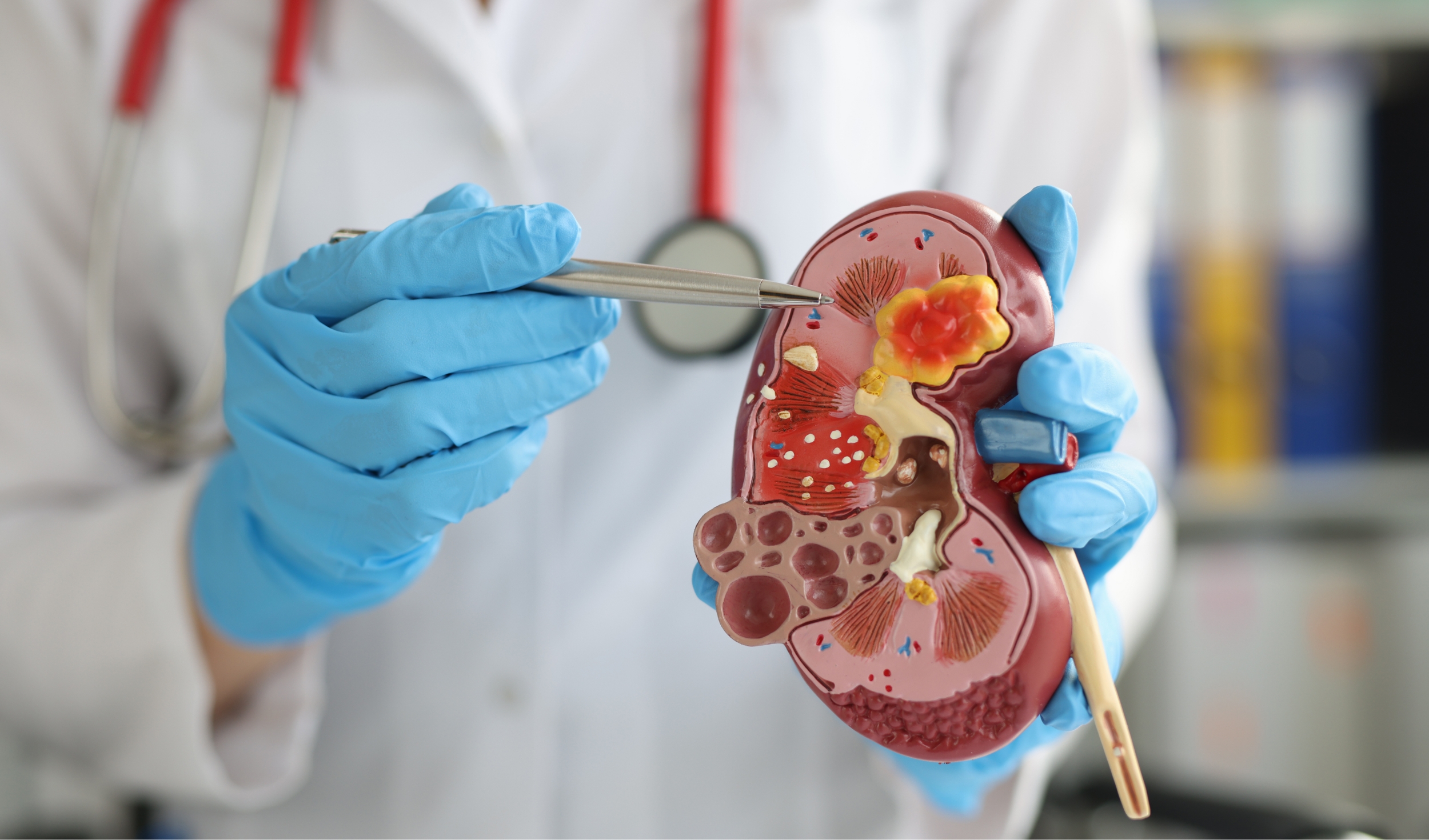What Are the Symptoms of Kidney Disease?
Knowing the initial symptoms of kidney disease can help people detect it early enough to get treatment. Kidney disease symptoms can include the following:
- Changes in urination — Urinating in larger or smaller amounts than usual, feeling pressure when urinating, changes in the colour of urine, foamy or bubbly urine or having to get up at night to urinate.
- Swelling of the feet, ankles, hands or face — Liquids the kidneys can't remove may accumulate in the tissues.
- Fatigue or weakness — A build-up of toxins or a shortage of red blood cells (anaemia) can cause these problems when the kidneys begin to fail.
- Shortness of breath — Kidney failure is sometimes confused with asthma or heart failure because fluid can build up in the lungs.
- Ammonia breath or an ammonia or metal taste in the mouth — Waste build-up in the body can cause bad breath, changes in taste or an aversion to protein-rich foods such as meat.
- Back or side pain — The kidneys are located on either side of the spine, in the back.
- Itching — Waste build-up in the body can cause severe itching, especially on the legs.
- Loss of appetite.
- Nausea and vomiting.
If you have any of these kidney disease symptoms, talk to your doctor about your concerns. This is especially important if you have diabetes or high blood pressure, which are the main causes of kidney failure, or even if you have a close family member who has kidney disease.
Let DaVita assist you if you have any concerns regarding kidney disease symptoms.



